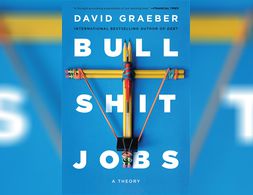✕
231 results
A Theory From bestselling writer David Graeber a master of opening up thought and stimulating debate Slate a powerful argument against the rise of meaningless unfulfilling jobs and their consequences Does your job make a meaningful contribution to the world In the spring of 2013 David Graeber asked this question …
Improving Decisions About Health Wealth and Happiness Now available Nudge The Final Edition The original edition of the multimillion copy New York Times bestseller by the winner of the Nobel Prize in Economics Richard H Thaler and Cass R Sunstein a revelatory look at how we make decisions for fans …
Whiteness is a process of learning: one is not born white, but becomes one. In this rich and compelling volume, Sriprakash, Rudolph and Gerrard offer a meticulous (and eye-opening) reading of educational experiences and structures that endorse systemic racism.
The 2007-2010 economic crisis has profoundly shaken the foundations of mainstream financial economics. The apparent falsification of core concepts such as risk diversification, informational efficiency and valuation efficiency by an unexpected course of events has revealed the need to redefine the objectives and direction of research today.
Some economic events are so major and unsettling that they “change everything.” Such is the case with the financial crisis that started in the summer of 2007 and is still a drag on the world economy. Yet enough time has now elapsed for economists to consider questions that run deeper than the usual focus on the immediate causes and consequences of the crisis.
Big challenges lie ahead for our society: increased automation of work, and the threat of catastrophic climate change. But so, too, are the huge possibilities presented by new technology and better ways of organising our economy in the wake of neoliberalism's failure.
Our public services are in dire need of investment. But in the middle of a debate over competing spending plans, isn’t it also time to ask what we want our public services to actually do for us? That’s the view of group of economists and campaigners who are pushing for something called ‘Universal Basic Services’ – a radical expansion of high-quality public services for all to areas like transport, childcare and social care.
We use cookies on our website. Click on Accept to help us to make Exploring Economics constantly better!







